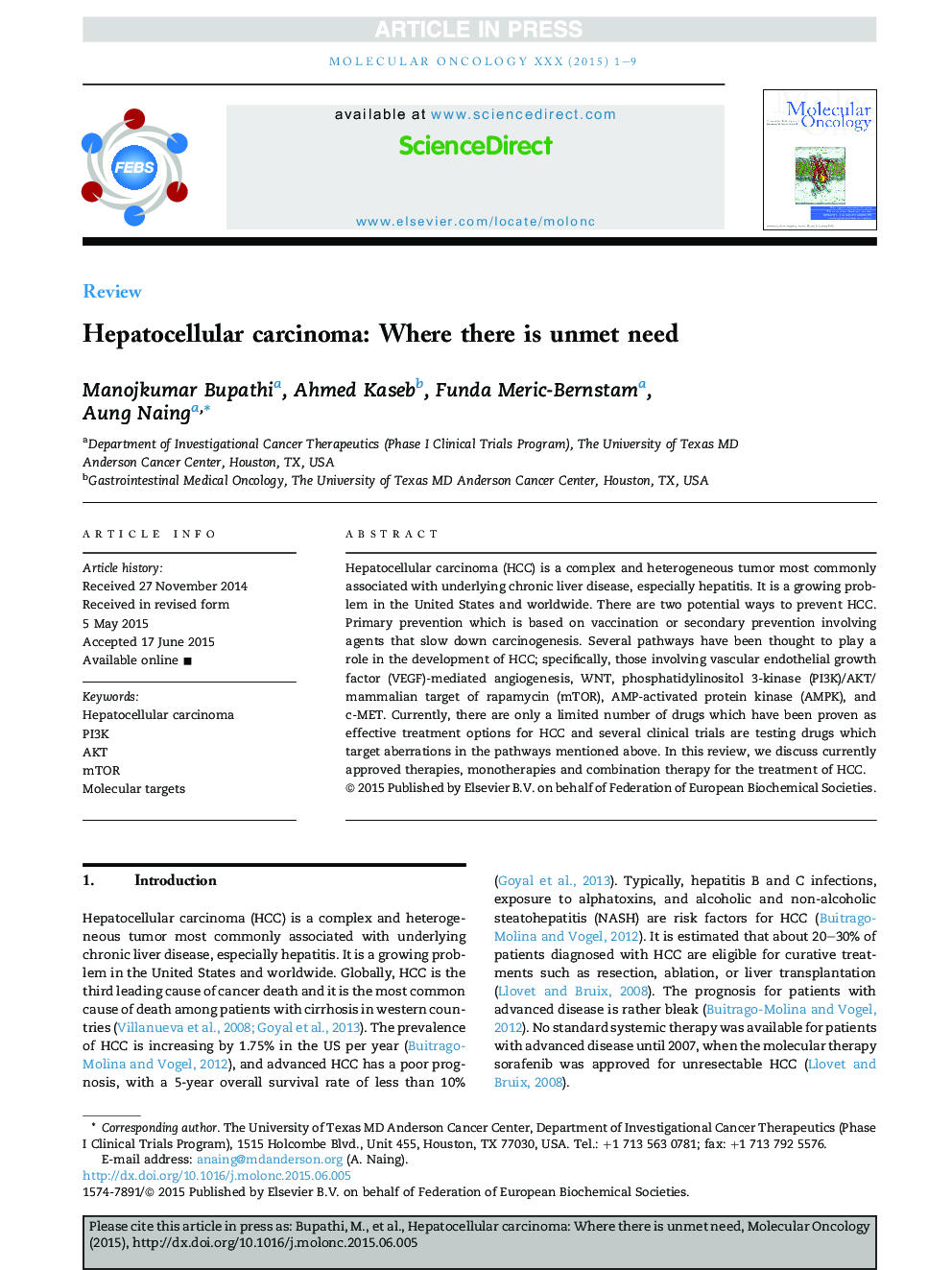| Article ID | Journal | Published Year | Pages | File Type |
|---|---|---|---|---|
| 10914696 | Molecular Oncology | 2015 | 9 Pages |
Abstract
Hepatocellular carcinoma (HCC) is a complex and heterogeneous tumor most commonly associated with underlying chronic liver disease, especially hepatitis. It is a growing problem in the United States and worldwide. There are two potential ways to prevent HCC. Primary prevention which is based on vaccination or secondary prevention involving agents that slow down carcinogenesis. Several pathways have been thought to play a role in the development of HCC; specifically, those involving vascular endothelial growth factor (VEGF)-mediated angiogenesis, WNT, phosphatidylinositol 3-kinase (PI3K)/AKT/mammalian target of rapamycin (mTOR), AMP-activated protein kinase (AMPK), and c-MET. Currently, there are only a limited number of drugs which have been proven as effective treatment options for HCC and several clinical trials are testing drugs which target aberrations in the pathways mentioned above. In this review, we discuss currently approved therapies, monotherapies and combination therapy for the treatment of HCC.
Related Topics
Life Sciences
Biochemistry, Genetics and Molecular Biology
Cancer Research
Authors
Manojkumar Bupathi, Ahmed Kaseb, Funda Meric-Bernstam, Aung Naing,
